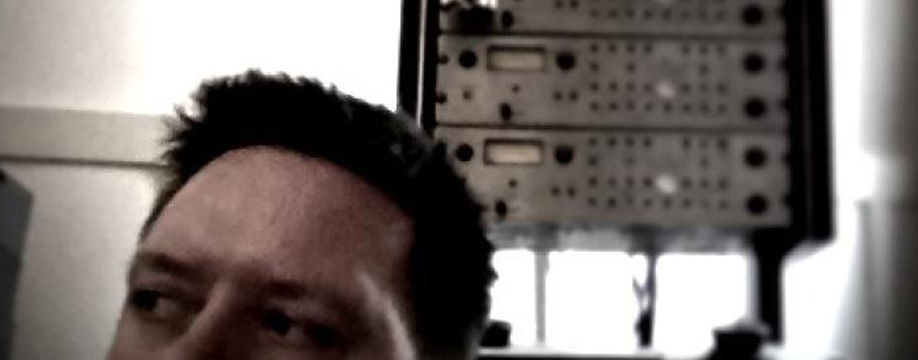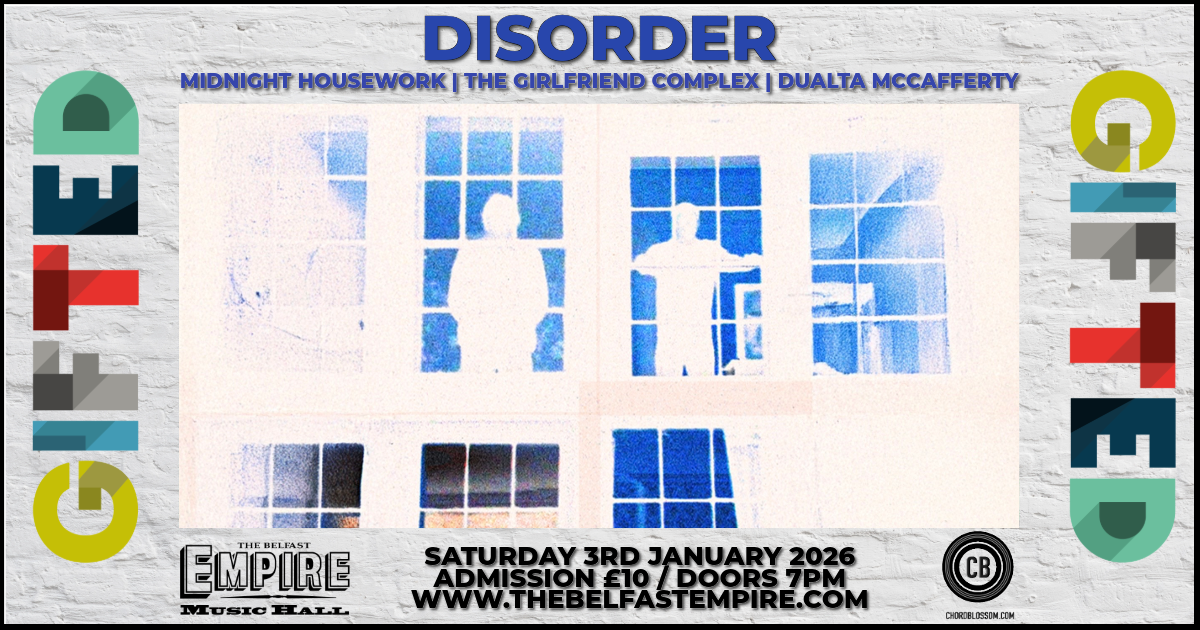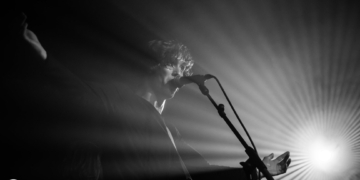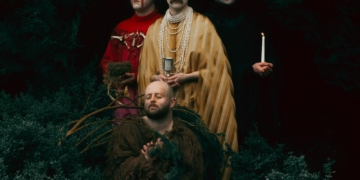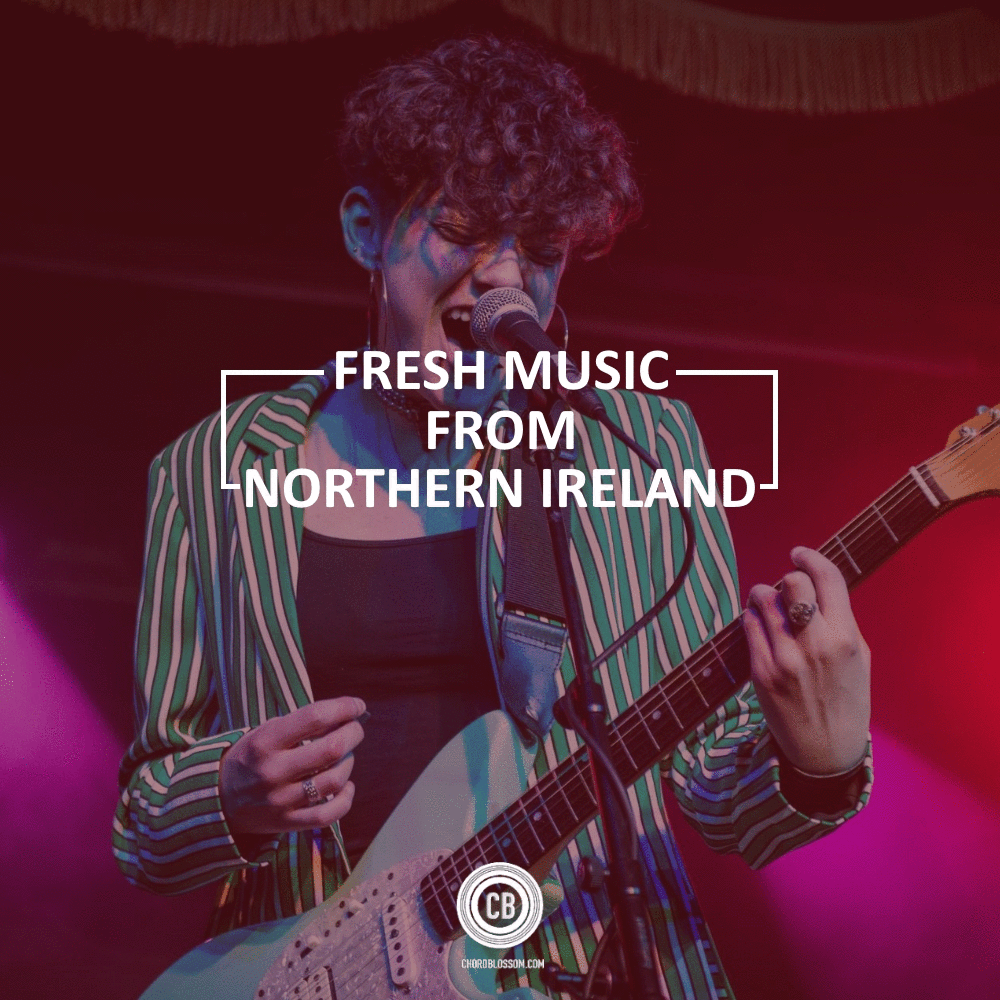► What inspired you to get into the production game? Has your love for it increased, decreased or stayed the same over the years and why?
I used to record myself playing guitar chords onto an old tape recorder. Then I’d play that tape back and record myself playing a melody over the top onto another tape recorder…I’d just keep layering things up until the tape hiss took over. When I was a child, I used to sit at an old piano just playing random notes together and changing the interval between them to see how it made me feel…I could do that for hours. I never even thought of it as music but it was compelling. This is what first got me interested in making music; How different notes, sounds and textures work together to form a piece of music. I still find it fascinating. Now that I have a recording studio and a lot more experience, I still feel a bit like that kid messing with tape recorders. I love the fact that you start the day with nothing more than an idea and end up with a fully formed piece of music that makes you feel good. I love what I do and it can become a bit of an obsession at times but I also kind of like that about it. There’s always something new to learn. I’ve recently come back from Austin, Texas where I was co-producing Rachel Austin’s new material with producer, Brian Beattie (Okkervil River, Daniel Johnston). We recorded 5 songs in Brian’s amazing analogue studio, filled with vintage gear and quirky instruments. Our drummer for those sessions was the inimitable Dony Wynn. Dony played with Robert Palmer for over 20 years and is currently drumming in Robert Plant’s new band, Crown Vic. Working with these guys was pretty inspirational and is one of the reasons I love my job.
► Did you do any formal training within the music production area?
No, I learn everything the long way….
► Your studio is called Big Space Studios – what inspired the name?
It was initially a silly attempt at irony, but the name stuck. My first ‘studio’ was a tiny top floor bedsit in an old house in Liverpool. I had a big old hand built console which took up most of the room, an Atari ST, my first ever PC with Cubase and one microphone. It was really small. My second place back in Belfast before I moved out into the country was also ridiculously small…hence my need to call it Big Space Studios. I like the name now as I think production and making music just requires a big space to play in, whether real or imaginary.
► Could you describe a typical day at BSS for us? Let’s use a three-piece rock band as the example.
I tend to work differently with different people and different bands… I don’t really have a set way of working. However, if I find a way of working with a band that works I’ll probably stick with it for that session at least. I’m not sure there is a typical day but with a 3 piece rock band, I’ll generally get the band to put down some guide tracks for the drummer….then focus on getting the drums down. After we have a great drum recording, I’d concentrate on the replacing the bass, the guitar and finally the vocal. I’ll always try and have a decent guide vocal from the start though. I find this way works best with those bands on a budget that want great quality recordings relatively quickly. It also means that you get to concentrate on each band member and their parts individually. My favourite way of working still has to be the simplest… the band in a great sounding room playing together with a handful of mics around them to capture the performance. Unfortunately a lot of bands underestimate how good they have to be to make this work.
► What instrument do you believe to be the hardest to record and get right?
It depends what day it is… Sometimes you just can’t get the sound you hear in your head. I suppose the most difficult technically is the drum kit; especially if you use lots of mics. The more mics, the more phase issues you are likely to have to deal with. The older I get, the less mics I tend to use on a kit. It helps if you have a great drummer and a great room and it depends on the genre too. For modern rock drums, a mic (or 2) on every drum is pretty common. My favourite drum mic setup though is the Glyn Johns technique http://en.wikiaudio.org/Drum_micing:Glyn_Johns_technique. The hardest instrument to deal with in the mix though is usually the bass. A tight, present yet full low end is still a bit of a holy grail for me, and from talking to a lot of other producers.. I’m not alone.
► How hands on do you like to be in your recording sessions?
I do whatever is needed. For some sessions, I’m happy to record exactly what the band want. If they need a little help, I can pitch in ideas. For other sessions, especially with some singer song-writers or bands that need a lot of guidance, I can get pretty involved. I’ve been known to play drums, bass, guitars, piano, percussion, chairs, pots & pans, vacuum cleaners etc… on sessions! I also love arranging. For me, the key to a good mix is first and foremost in the arrangement. I think of all the useful things I’ve learned over the years, knowing when there is too much or too little going on in a song is one of the most important. A lot of bands work out their songs for live performance, which is perfectly understandable. Sometimes though, this can mean that the rhythm guitar (for example) is playing all the way through the song. This might be because the guitarist doesn’t want to stand on stage doing nothing in the pre-chorus. However, the song may benefit from a drop before the chorus and taking out the guitar might achieve that. It still surprises me how little some bands think of the song’s arrangement, tension and release, when to play and when not to play.
► With the steady increase of budget home studios, do you feel there will always be a place for dedicated studios like Big Space? And do you think the godsend of a musician being able to have their own bedroom studio is a help or a hindrance?
I still think of my studio as a home studio…although a very high end one. I think it is becoming much more difficult for the large, expensive recording studio, as more people are able to record at home and are happy enough with the results. I think a studio like mine is in a great position, as it is a big step up from the quality of a budget home studio but it is still very affordable. To be honest, when you book my studio, you aren’t just paying for better gear; you’re also paying for years of experience and a whole bunch of recording techniques and production techniques that you as a musician may not have. I also work with people who do some recording at home but maybe want to lay down a few tracks in a better studio…vocals, real drums etc… It’s all good. I love the fact that everyone can now record at home. It gives you a chance to try out ideas and experiment, which is great. I also think that affordable high end studios with experienced engineers and producers are also necessary in making great music.
► Geek time; Pc or Mac? What DAW (digital audio workstation) do you run? And what is your current signal chain?
I have a Quad core PC which I built myself. It works and is pretty solid. I’d love a dedicated Mac for the studio and no doubt I’ll get one soon, but for the moment everything works great and as they say, if it ain’t broke… I’m running Pro Tools as I know it inside out, and again, it works for me. My current signal chain would be a choice of Neumann, Royer, Blue or Shure microphone into an API 3124 preamp, or the preamps on my Soundtracs MRX32 console, through an Apogee Rosetta into my DAW.
► Chordblossom and Big Space Studios have hooked up to offer a (lucky) band the chance to record a double a-side at big space studios, and have their website/single artwork and a promotional photoshoot taken care of by chordblossom ; what inspired this, and are you excited at the prospect of running into a hot new band you’ve never heard before?
The bottom line is that I love hearing new music and helping new bands but because of the work I do and the weird hours I work, I don’t get out as much as I’d like to see new bands, so I thought that by offering this opportunity I’d get to hear a lot of great new N.I. bands and more importantly help one of them record a great double A-side that they can use to promote themselves. I’m very excited about it and can’t wait to hear what’s out there… The best thing is, I have absolutely no pre-conceived idea of what I’m looking for, and no specific genre or type of band or artist…I just know that it will have to be great.
► Finally, why should NI Bands considered recording their next offering in Big Space Studios?
I love working with great musicians and helping those who are trying to make their way in this bizarre business. Not only will you get great recordings here, you’ll also enjoy the experience. I try to make it affordable for bands and singer songwriters to make really good quality recordings and explore their creativity in a safe and relaxed environment. My prices are very competitive and I can work to hourly, daily or project rates. If anyone reading this wants to come and have a look at the studio and a chat about recording, mixing or production, just give me a call on 077 175 44422 or contact me through my website @ www.bigspacestudios.co.uk

